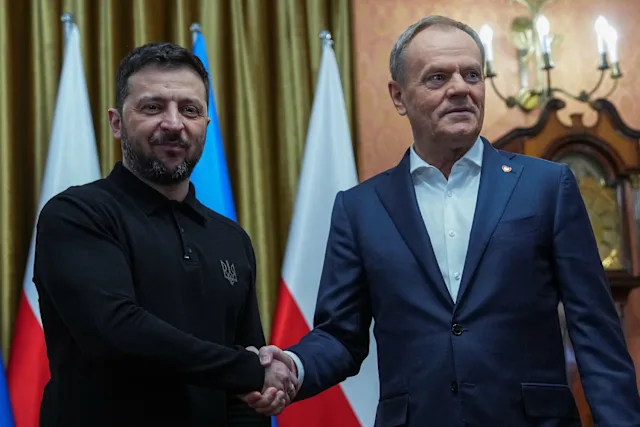Poland is making a bold move to strengthen its national defense. Prime Minister Donald Tusk announced that every adult male in the country will soon be required to undergo military training. This initiative aims to more than double Poland’s military forces, ensuring the nation is ready in case of a conflict with Russia.
Additionally, Tusk revealed plans to significantly expand Poland’s arsenal, including the possibility of acquiring nuclear weapons and other advanced military technology. The announcement came as former U.S. President Donald Trump shifted his stance on Russia, threatening new economic sanctions while expressing frustration over continued support for Ukraine.
A Drastic Shift in Poland’s Military Policy
Speaking before the Polish Parliament, Tusk stated that the government would develop a framework for large-scale military training before the end of the year. The goal is to prepare a substantial reserve force that can respond effectively to potential threats.
“We are working towards a model where every adult male in Poland receives military training so that our reserves are comparable to the risks we face,” Tusk declared.
Currently, Poland’s military consists of about 200,000 personnel, but the government aims to increase this number to 500,000, including reservists. While military training may also extend to women, Tusk emphasized that warfare remains largely dominated by men.
This move reflects Poland’s growing concerns about regional security. Russia’s 2022 invasion of Ukraine served as a wake-up call for Polish leaders, many of whom still remember their nation’s history under Soviet control. With tensions escalating and U.S. foreign policy shifting under Trump’s influence, Poland is taking proactive steps to bolster its defenses.
A Nation Preparing for the Worst
Poland has been one of NATO’s strongest supporters and a reliable ally of Ukraine, particularly since the war began. However, recent developments in U.S. foreign policy have raised concerns. Trump has made controversial claims about Ukraine’s role in the conflict, halted military aid, and paused intelligence support, causing unease among European allies.
Even as Trump threatened Russia with large-scale sanctions, he simultaneously expressed growing reluctance to support Ukraine, stating that negotiations with Kyiv were becoming increasingly difficult. This has left European nations, particularly those bordering Russia, reevaluating their security strategies.
Poland’s Evolving Role in European Security

Beyond mandatory military training, Poland is considering expanding its defense capabilities with cutting-edge weapons, potentially including nuclear technology. While no specific details were provided, Tusk emphasized the need to pursue “the most advanced capabilities” to safeguard national security.
Poland has already demonstrated its commitment to defense by accepting millions of Ukrainian refugees and increasing military cooperation within NATO. The new military training policy, combined with efforts to modernize the country’s arsenal, signals Poland’s determination to remain prepared for any future conflict.
With over 7 million Ukrainian refugees crossing into Poland since the war began and nearly 1 million still residing there, Poland remains at the heart of Europe’s response to Russia’s aggression. As global alliances shift, Poland is positioning itself as a key player in regional security—ready to defend itself and its allies against any potential threats.
Conclusion
As geopolitical tensions rise, Poland is taking decisive steps to secure its future. Mandatory military training for all men and potential nuclear armament are bold moves that reflect the country’s urgent focus on national defense. Whether these measures will deter aggression or escalate tensions remains to be seen, but one thing is clear—Poland is preparing for any possibility.


